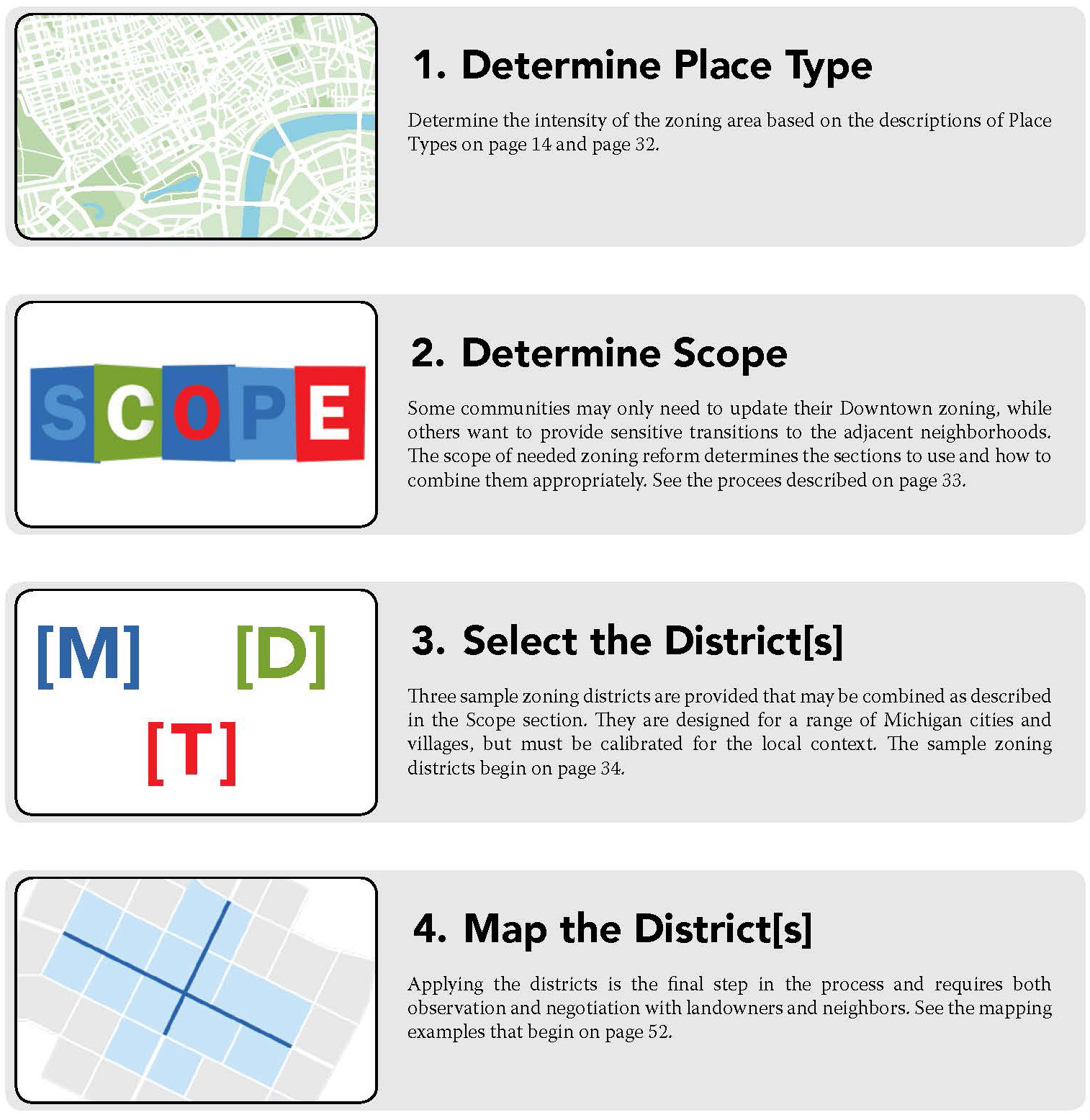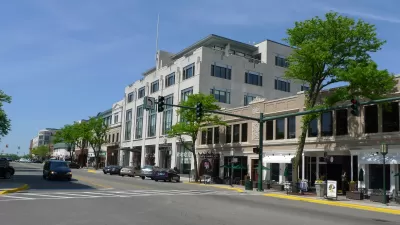The Users’ Guide to Code Reform leads planners through the code reform process, providing tools for governments lacking the capacity to develop a full form-based code. Susan Henderson and Matt Lambert hit the high points.
"The Project for Code Reform is one of the most important efforts we’ve had the privilege of contributing to in the last decade. We’ve spent most of our professional efforts crafting Form-Based Codes (FBC) for local governments, and while we still feel that is the zoning gold standard for placemaking, we realize FBCs are not accessible to many communities across North America for reasons of capacity—either staff or political. Increasingly, local governments want to align their zoning regulations with their goals for placemaking, incremental development, livability, and economic success. They realize conventional suburban standards have completely failed to solve for these issues; however, there are often gaps in political support, staff capacity, and budget to hire consultants for a major rewrite of their ordinances.
"When you consider the 42,000 units of local government in the US, and the vast majority with limited budgets and staff, the issue becomes how to deploy zoning reform broadly, with the least impact on capacity. While most current zoning-focused RFPs include form-based elements, and the spread of FBCs has accelerated, thousands of municipalities and counties continue to guide development with zoning that is antithetical to community goals. At present, analogous to tech start-ups, FBCs have a scaling problem: how can we accelerate the reform of existing codes by local governments in a politically and economically sensitive way?"
Henderson and Lambert go on to highlight alternatives, via their work with Project for Lean Urbanism's Lean Code Tool the Project for Code Reform's Users’ Guide to Zoning Reform.

FULL STORY: The Users’ Guide to Zoning Reform

Planetizen Federal Action Tracker
A weekly monitor of how Trump’s orders and actions are impacting planners and planning in America.

Maui's Vacation Rental Debate Turns Ugly
Verbal attacks, misinformation campaigns and fistfights plague a high-stakes debate to convert thousands of vacation rentals into long-term housing.

San Francisco Suspends Traffic Calming Amidst Record Deaths
Citing “a challenging fiscal landscape,” the city will cease the program on the heels of 42 traffic deaths, including 24 pedestrians.

Defunct Pittsburgh Power Plant to Become Residential Tower
A decommissioned steam heat plant will be redeveloped into almost 100 affordable housing units.

Trump Prompts Restructuring of Transportation Research Board in “Unprecedented Overreach”
The TRB has eliminated more than half of its committees including those focused on climate, equity, and cities.

Amtrak Rolls Out New Orleans to Alabama “Mardi Gras” Train
The new service will operate morning and evening departures between Mobile and New Orleans.
Urban Design for Planners 1: Software Tools
This six-course series explores essential urban design concepts using open source software and equips planners with the tools they need to participate fully in the urban design process.
Planning for Universal Design
Learn the tools for implementing Universal Design in planning regulations.
Heyer Gruel & Associates PA
JM Goldson LLC
Custer County Colorado
City of Camden Redevelopment Agency
City of Astoria
Transportation Research & Education Center (TREC) at Portland State University
Jefferson Parish Government
Camden Redevelopment Agency
City of Claremont



























